How to become a fossil?
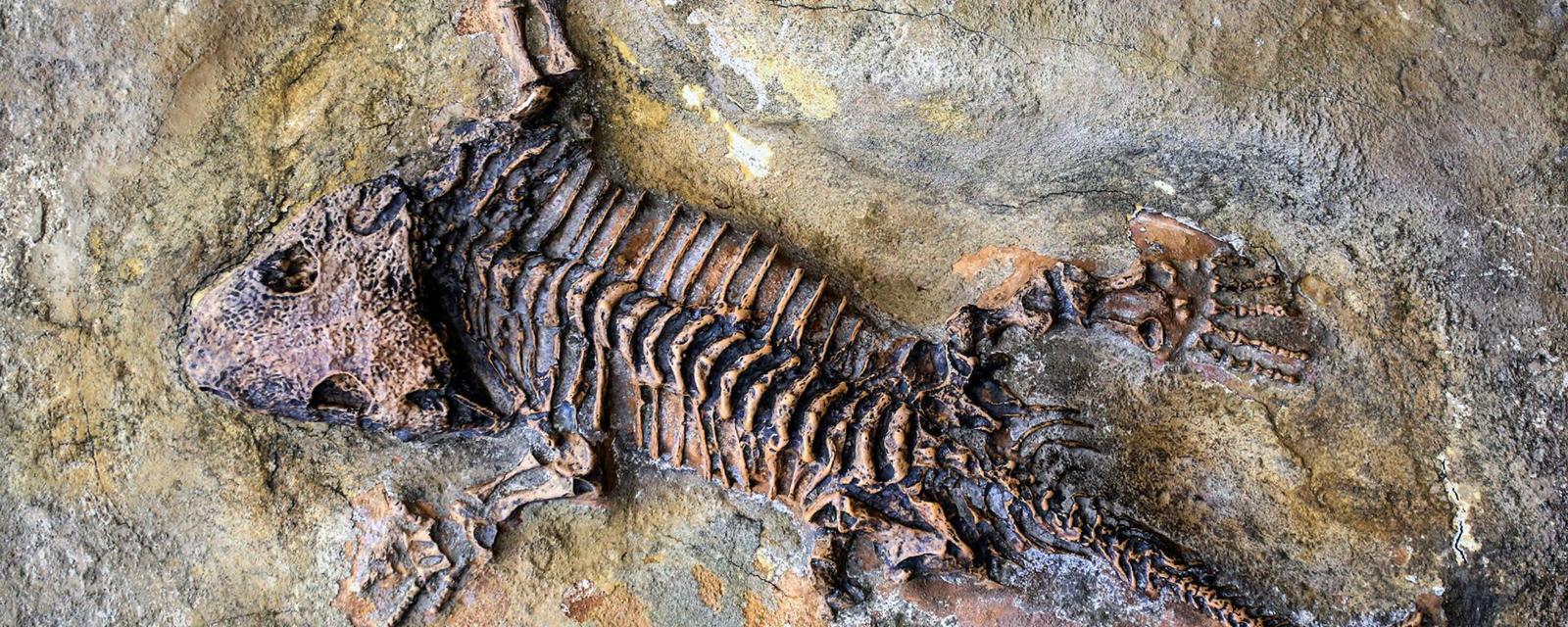 Source:
Source:
Every fossil is a small miracle. As noted by bill Bryson in his book "a Short history of almost everything", just one bone in a billion becomes a fossil. In such calculations, all fossilized legacy of the 320 million people living, for example, in the US today, will be about 60 bones or less than one-fourth of the human skeleton. Less than 1/10 of one percent of all species that ever existed became fossils. But if you try you can greatly increase your chances of eternal life, at least in this form.
If you imagine that 60 of these bones will be scattered on the square for 9.88 million kilometers, the chance to find those bones in the future are virtually absent. In General, calcification (or fossilization) is so unlikely is the process that scientists estimate that less than 1/10 of one percent of all ever kinds turned into fossils. And certainly not all have been discovered.
In this sense have an advantage: we have hard skeletons and we relatively large. Thus, we are more likely to go through fossilization than a jellyfish or a worm. However, there are some things that will help you to remain in the ground for a long time.
Taphonomy – the science of burial, decay and preservation – that is, the processes that occur after the organism dies and becomes fossilized. To learn how to become a fossil, the BBC talked with the best taphonomically in the world.
theNakopiteli and quickly
"to Maintain the good condition of the body after death is the big question. Long enough to sink into the sediment and then altered physically and chemically deep underground in order to become a fossil," says sue Bergman, taphonomic from the Museum of natural history, University of Oxford.
"to survive for millions of years, you should also survive the first hours, days, seasons, decades, centuries and thousands of years," adds Susan Kidwell, Professor, University of Chicago. "We have to survive the initial transition from "taphonomically active zone" in a zone of permanent burial, when your remains are unlikely to be exhumed".
There are infinitely many ways to break the successful fossilization. A lot can happen to a depth of 20-50 cm, in the soil or on the seabed. The remains can be eaten and scattered by scavengers, for example, or be exposed to the elements for far too long. I also wouldn't like to be touched or moved samlerhuset animals.
When it comes to quick burial, assistance may come natural disasters – floods, for example, allowing huge volumes of sedimentary rocks or volcanic eruptions. "One theory that dinosaur bones were placed initially in the dry conditions that led to the death of the dinosaurs, and then the floods carried sediments, which they were buried," says Bergman.
Of Course, we used to bury a human body at a depth of two meters (without cremation). But this is not enough.
theFind water
Of Course, the first step is to die, but to die anywhere will not work. Need to find a suitable place. It should also be remembered the water. If you die in a dry environment as soon as you will find scavengers, your bones will be just on the surface. Most experts agree that it is better to sink into the sand, dirt and sediments, and it is better suited to lakes, floodplains and rivers, or the sea.
"paleo-environment in which we find the best fossils — it is a lake and river system," said Caitlin Sims, tagonist from the University of Queensland in Brisbane, Australia. Important factor is the rate at which fresh rainfall buried object. It recommends that the rivers flowing from the mountains, which cause erosion and carry a lot of rain. Another option is coastal Delta floodplain where river sediments quickly flushed when the water flows into the sea.
Ideal would be "anoxic" environment where very little oxygen and which cannot exist in animals and microorganisms, which can disturb and digest the remains.
Kidwell recommends avoiding diving to 50 centimeters below the sea floor, because this depth usually burrow crabs, shrimp, worms, and other animals.
"you Need to be in a place with a relatively low instep, so it probably sank into the sediment than was raised, and preferably with stagnant water – a pond, lake, estuary or ocean – so that it appeared an oxygen-free environment".
In rare cases, fossils created in this kind of calm, anoxic conditions, retain their soft tissue – skin, feathers and entrails. In China, they found feathered dinosaurs, and in the Bavarian quarries – the first birds, Archaeopteryx.
Once your fossils will be below the biologically active surface layer, they will steadily deeper and deeper the accumulation of sediment, says Kidwell. Risk of fracture in this case, it goes to a completely different geological scale, namely tectonics.
The Question is, how long will it take to precipitation surrounding the corpse turned into a strong rock, and then to be raised in the process of geological activity at height, where erosion can expose the remains.
theRefrain from the tomb
We Now turn to the technical aspects of fossils and what the fossils can be your body.
If it is very generalized, something the age of 50 000 years can be called "subfossils" (nedootsenennost). They mostly consist of original tissues. Extinct megafauna of the Pleistocene, which you find in caves, like giant ground sloths in South America, cave bears in Europe and marsupial lions in Australia, is a good example.
However, if you want your remains become a fossil that will stay for millions of years, you'll need minerals, which can seep through your bones and replace them with more solid substances. This process, known as the "permineralization", and in fact creates full-fledged fossil. And it can occur millions of years.
In Short, the coffin you do not need. Fastest bones are replaced by minerals, when through them flows the mineral-rich water, feeding them iron and calcium. The coffin, of course, will save the skeleton in a beautiful form, but to prevent this process.
However, there is a method that can work in a coffin. Mark Archer, a paleontologist at the University of New South Wales, offers burial in a concrete coffin, filled with sand, with a hundred holes with 5 mm diameter drilled on the sides. Then it must be buried deep enough that could pass through underground water.
"If you want to be a classical bony fossil dinosaur as a canadian, you can use coarse river sand. All soft tissues will be destroyed and you'll be well-marked skeleton."
As for minerals, calcium ions are perfect because they can settle in the form of calcite form of calcium carbonate. "They will begin to cement or cover the body and will protect it in the long run, because it is likely to lie at a great depth".
An Intentional planting of your body with suitable minerals such as calcite or gypsum, will also accelerate the process. Promote growth of hard minerals rich in iron, will also be intelligent, because they in the long run withstand weathering.
The Silicates from the sand is also suitable for inclusion. Archer even said that it is possible to fill the body with the copper strips or Nickel granules, if you like beautiful blue fossilized bones and teeth.
theavoid the edges of tectonic plates
If you survive the first few hundreds of thousands of years and minerals will start to replace your bones, well, congratulations! You have successfully become a fossil. As soon as you will accumulate layers of sediment and you will sink deeper into the earth's crust, heat and pressure will do the trick (and the body).
But that's not all. Your fossil can dive so deep that will be melted with heat and pressure of the Earth.
How to avoid it? You need to stay away from the edges of tectonic plates where the crust will eventually be swallowed by the surface. One of the subduction zones is in Iran where the Eurasian plate hangs over the Iranian plate.
theMay you find
Let's think about the potential to find your fossils.
If you want to give someone a chance to find one so carefully preserved body, you need to schedule a burial in a place which is now low enough to accumulate the necessary for deep burial of the sediments – but also to rise to the top again. In other words, you need a place where weathering and erosion will eventually expose the superficial layers of your remains.
For Example, Mediterranean sea. It is shallow to the extent that, as Africa is moving towards Europe. Other small inland sea is also nice. For example, the Dead sea. The high salt content will keep your body and marinate it properly
theMay remain in amber
We reviewed the standard method of creating a solid, durable, bone fossils, largely replaced by stone. But there are also other unusual methods.
For Example, amber. There are many fossils, perfectly preserved in this gem, made from tree resin – birds, lizards, and even the tail of the feathered dinosaur found in Myanmar. "If you can find a large amount of wood resin to turn into amber, you guarantee the perfect preservation of their soft tissues and bones," says CIMA. "But such a large animal as you, it won't be easy to do."
Can't find enough amber? The following option...
Recommended
What will be the shelter for the first Martian colonists?
Mars is not the friendliest planet for humans While the Red Planet is roaming rovers, researchers are pondering the construction of shelters and materials needed by future Martian colonists. The authors of the new paper suggest that we could use one ...
New proof of string theory discovered
Just a few years ago, it seemed that string theory was the new theory of everything. But today the string universe raises more questions than answers String theory is designed to combine all our knowledge of the Universe and explain it. When she appe...
What is the four-dimensional space?
Modeling camera motion in four-dimensional space. View the world in different dimensions changes the way we perceive everything around, including time and space. Think about the difference between two dimensions and three dimensions is easy, but what...
Related News
Scientists have invented a new way to store data inside DNA
the Future of technology lies not only in the constant growth of computing power of processors or the transition to quantum computers, but also in the evolution of storage devices. Humanity generates a huge amount of information, ...
Five amazing facts about our ancestors that we have learned from DNA
Not so long ago scientists used DNA of one of the oldest English skeletons (10,000 years) to find out how it looked the first inhabitants of Britain. However, ancient DNA of the skeleton is taken not for the first time and reveals...
Scientists got the "impossible" form of ice that can only exist on Uranus
a team of scientists from Lawrence Livermore National laboratory Lawrence had a unique form of ice, called superionic ice (superionic ice). The main feature of this ice is that it consists of a solid crystal lattice of oxygen atom...
Created superdivision, on the strength comparable to metal
Titanium alloys, perhaps, one of the most durable materials on our planet. But they have two very unpleasant drawback: they are very heavy and very expensive. Scientists from the University of Maryland (UMD) have invented an alter...
Graphene could solve five major problems of the world
In September 2015, world leaders gathered at the historic UN summit to adopt the goal of sustainable development (SDG). Seventeen of these ambitious goals and indicators will help guide and coordinate government and international ...
China successfully conducted a unique operation to restore the ears of children
a Group of five children in China got new ears, grown on the basis of a detailed three-dimensional models of healthy organs and using their own healthy cells. This is the first such case in the world of medicine. On the work done ...
What will happen to science in the near future?
If you go back 30 years ago, the world would be completely different. The only known planets were the planets of the Solar system. We had no idea what dark energy is. No space telescopes. Gravitational waves were an unproven theor...
Scientists close to creating artificial life forms
it would Seem that the creation of artificial life – the lot fiction. But development in this area being the first year. And the question now is not about artificial intelligence or robotic mechanisms. A group of American research...
Can genetics to make animals smarter?
advances in neural implants and genetic engineering suggest that in the near future we will be able to enhance human intelligence. For example. If we succeed, if we should take the brothers with you? The improvement of the human b...
Cosmetic company L'oreal grows human skin specifically for China
the Cosmetic industry in recent years stepped far forward, and to test new cosmetic products now use a specially grown human skin. But as you know, the skin of people of different nationalities at the micro level may be very diffe...
Robot scientist discovered a new drug
Development and testing of new drugs – employment is extremely long and labor-intensive. But, like everything in the modern world, this area of pharmacology is sometimes to "instruct" robots, because they can calculate all possibl...
Physicists accelerate beams of light in a curved space in the laboratory
Physicists have managed to demonstrate the acceleration of the light rays on flat surfaces when accelerating led to the fact that the rays follow curved trajectories. However, a new experiment has expanded the boundaries of what y...
Scientists have created a gamma ray burst in the laboratory
Gamma ray bursts, the powerful flashes of light — these are the brightest events in our Universe, which do not last longer than a few seconds or minutes. Some are so bright that they can be seen with the naked eye, like burs...
Physics of the Tomsk state University are developing levitation 3D printer
a New method for ultrasonic 3D printing has developed the physics of the Tomsk state University. Recently they have developed a setup for levitation of small particles that will be used as the basis for the levitation of a new 3D ...
Appeared in Dubai's first vertical farm
the world is not the first day is developing projects for the greening of cities and the establishment of so called «vertical farm», which will not only improve the ecological environment, but also significantly save spa...
10 scientific stories of 2017, which will seem fantastic
And now it is time to sit down, look back, take a deep breath and look at the headlines of scientific articles that we might otherwise miss. Scientists are constantly pleasing us with new developments in various fields. Nanotechno...
Six houses of the future which will protect you from climate change
Floods, droughts, hurricanes, forest fires, once rare weather events are becoming more common and powerful because of climate change. And it is impossible to deny. At the same time, more and more people move to cities around the w...
Glowing plants will illuminate the streets
On the streets of our cities we used to see a lot of plants that carry out, as a rule, purely decorative function. But what if all this flora it would be possible to give additional functions? For example, the day plants produce o...
Scientists from MIT created a tattoo from a living cell
Researchers from Massachusetts Institute of technology (MIT) invented a temporary "tattoo" consisting of a genetically engineered living cells. Their prototype is similar to a transparent sticker with a pattern resembling wood. Th...
Russia is working on a wheelchair controlled by gaze
High technology are designed not only to facilitate our lives, but also improve the quality of people with disabilities. Russian scientists on the basis of the research center "Kurchatov Institute" has developed a new wheelchair g...


















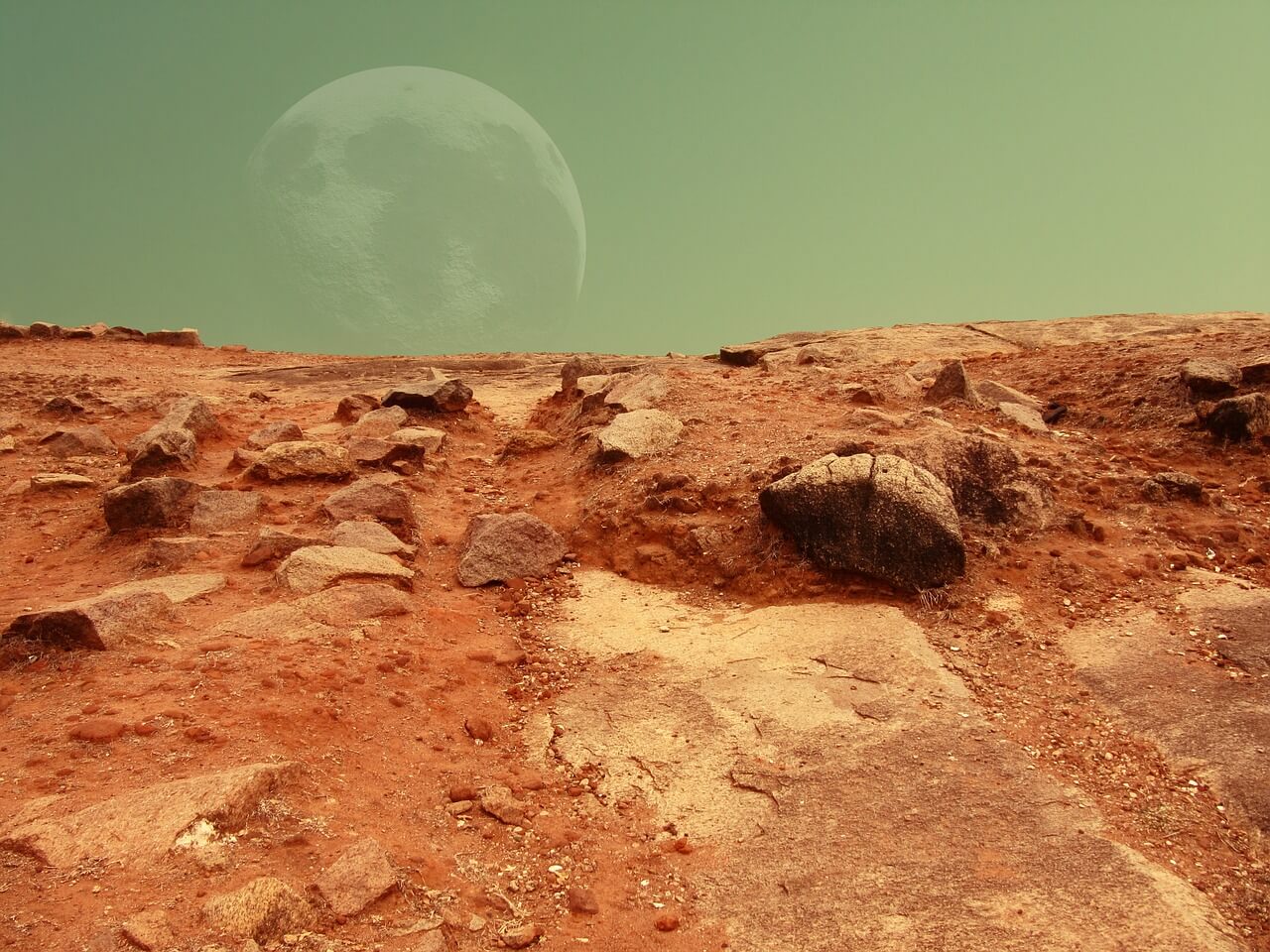


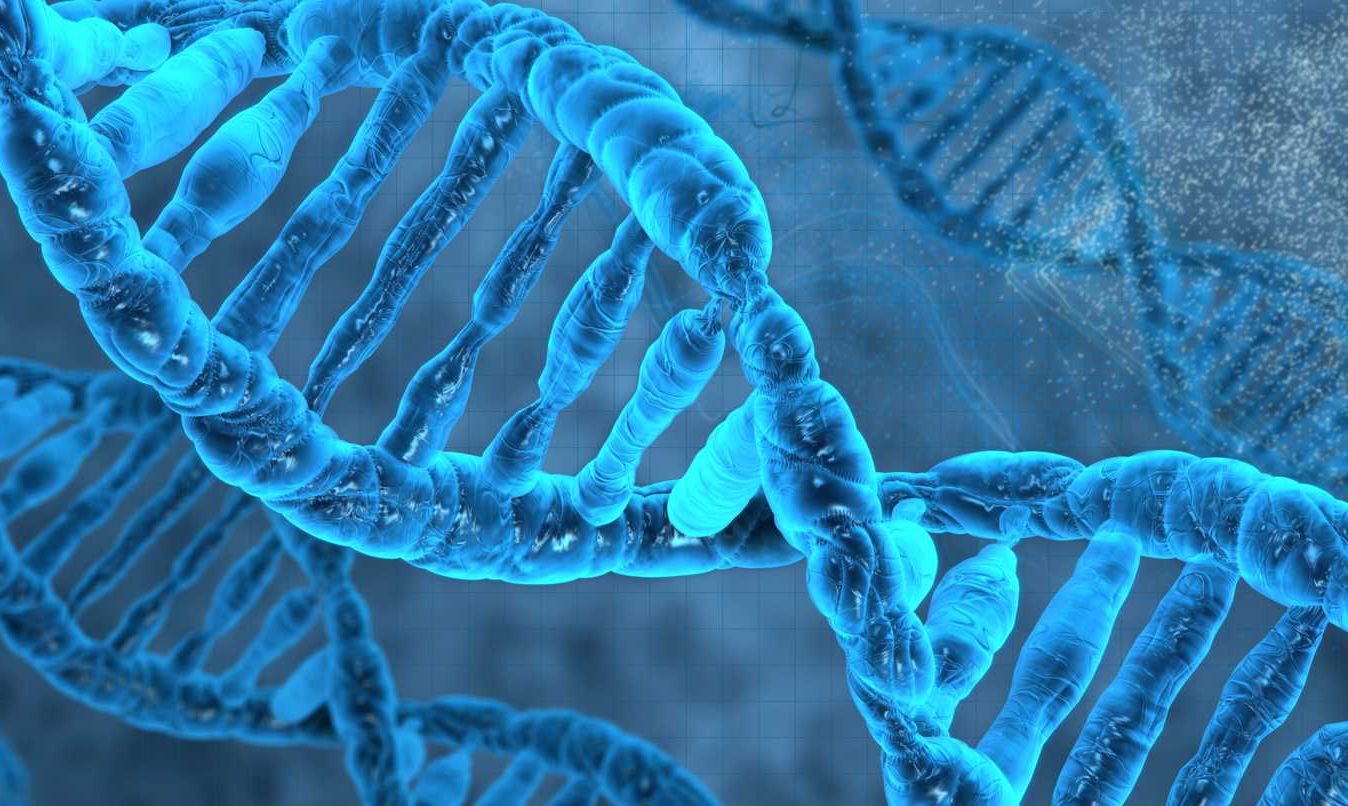
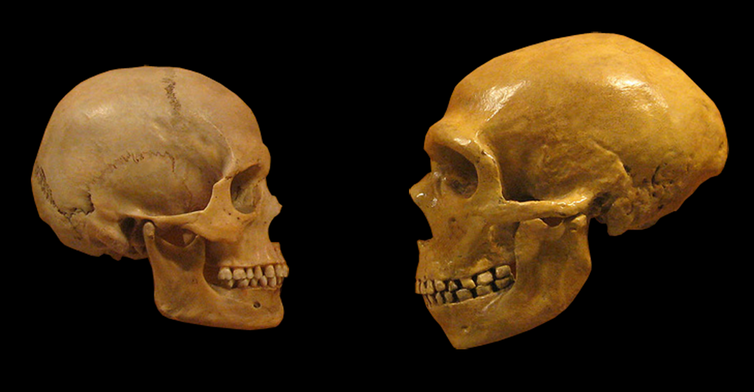

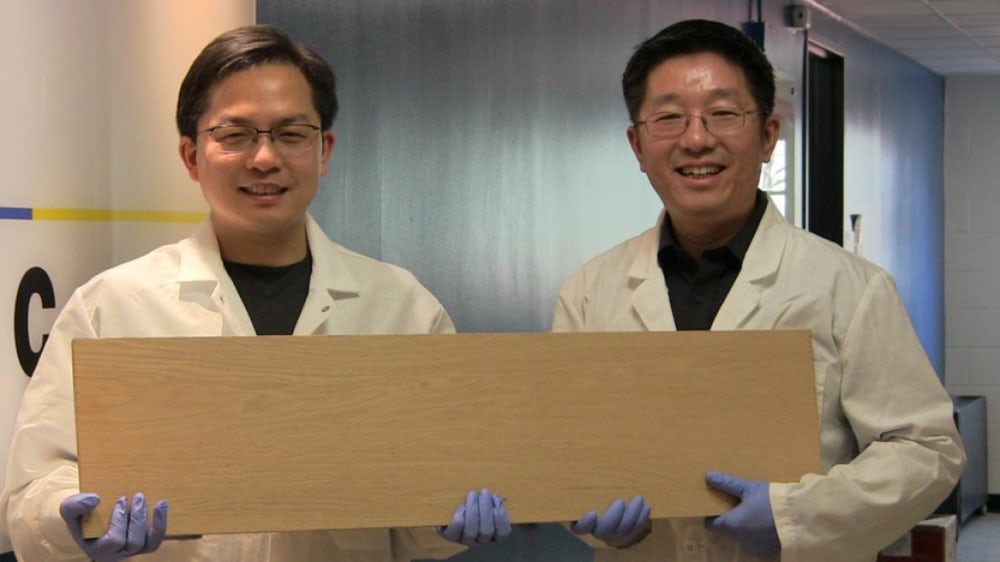
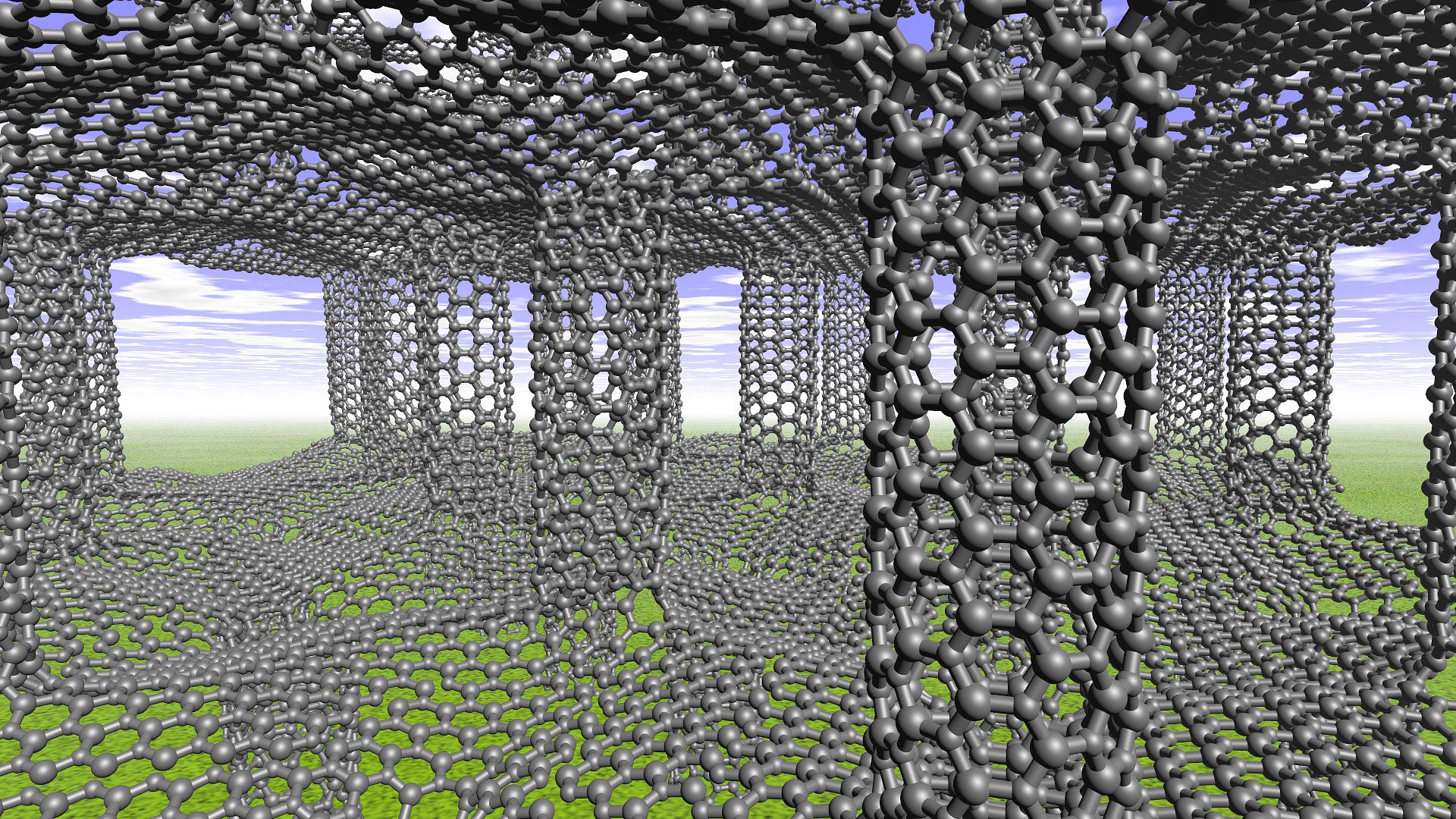
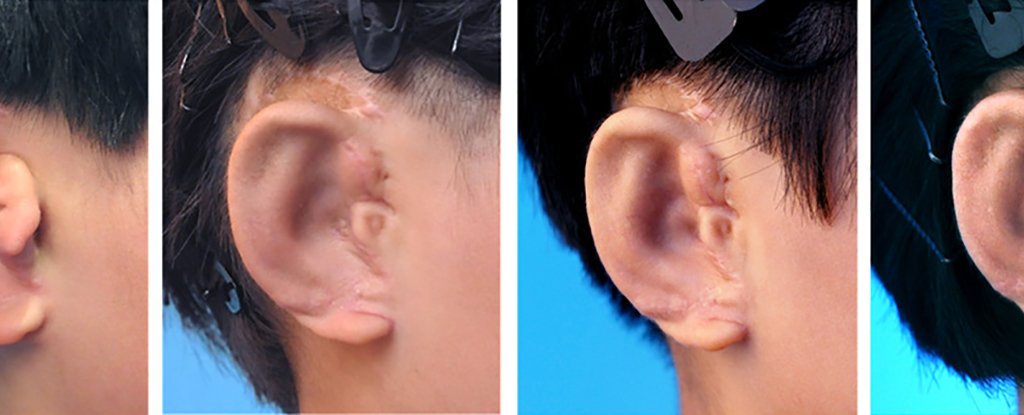

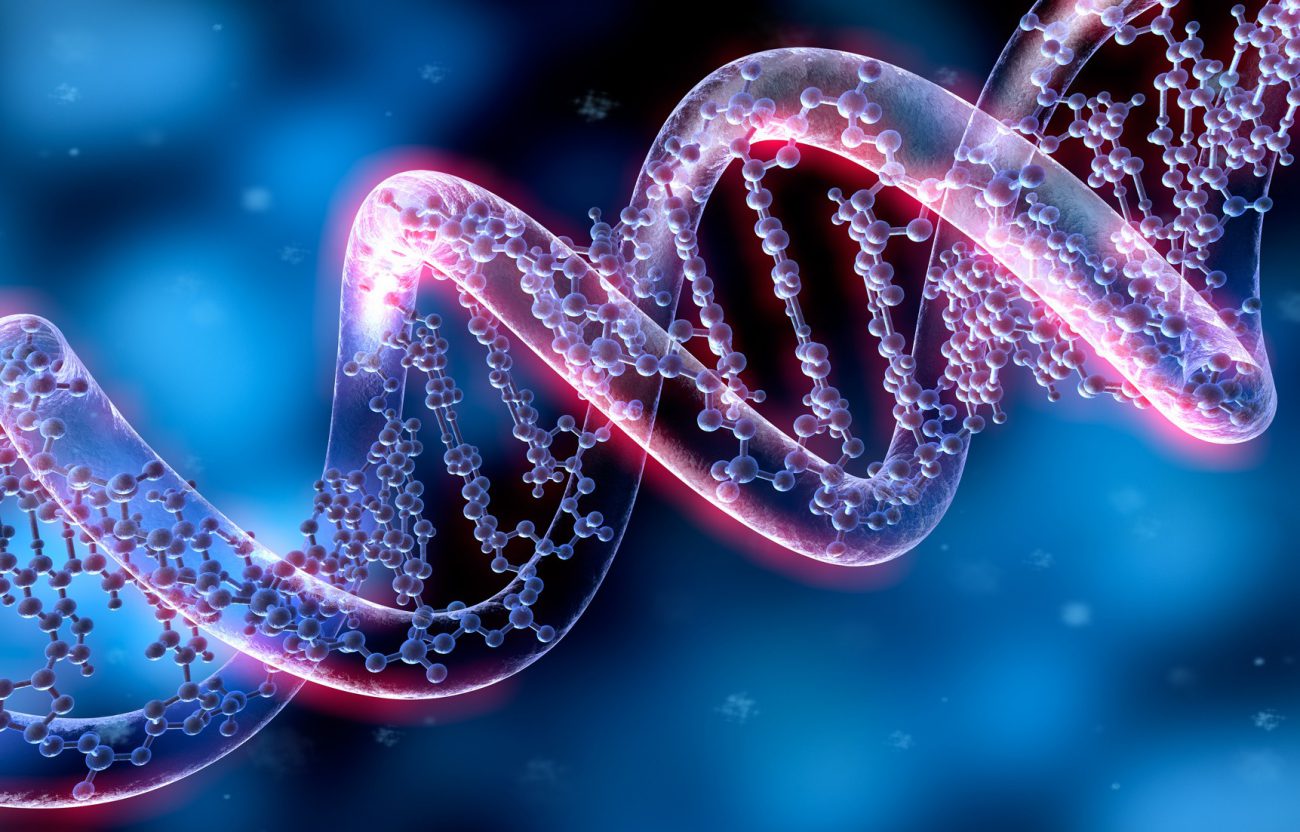
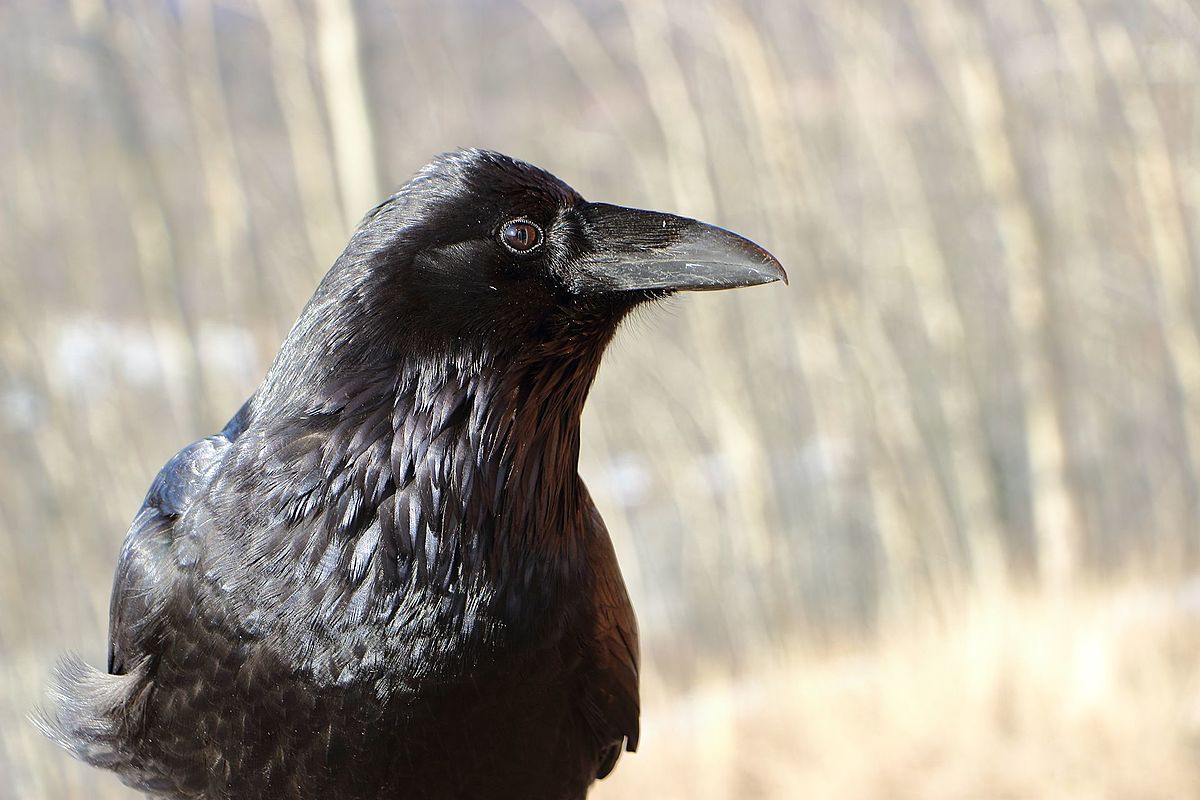




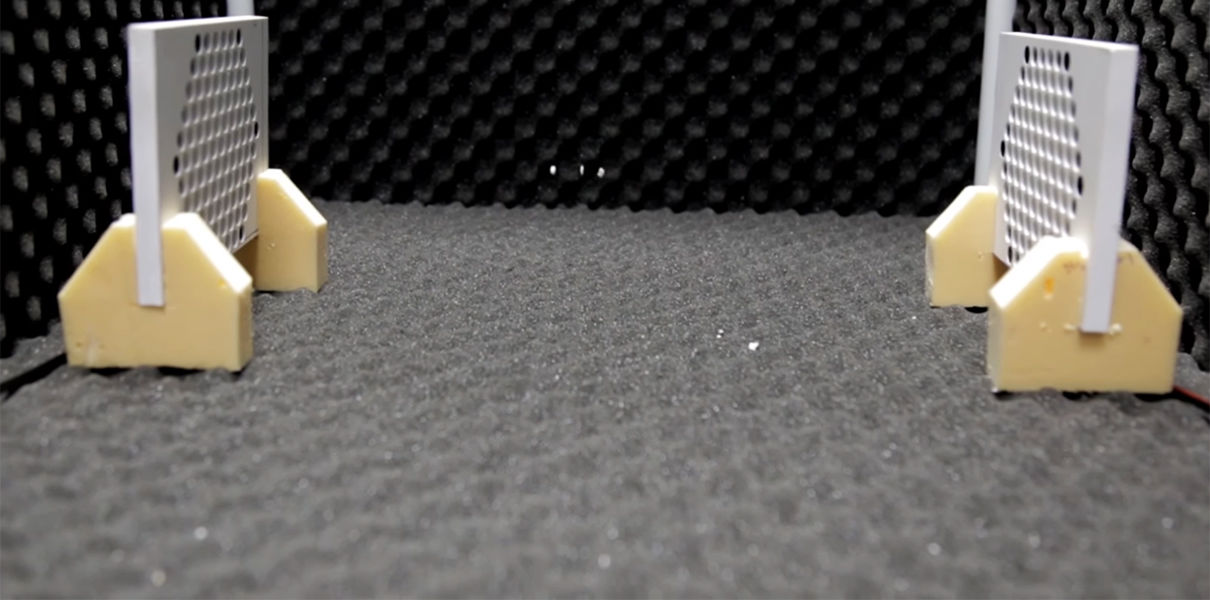

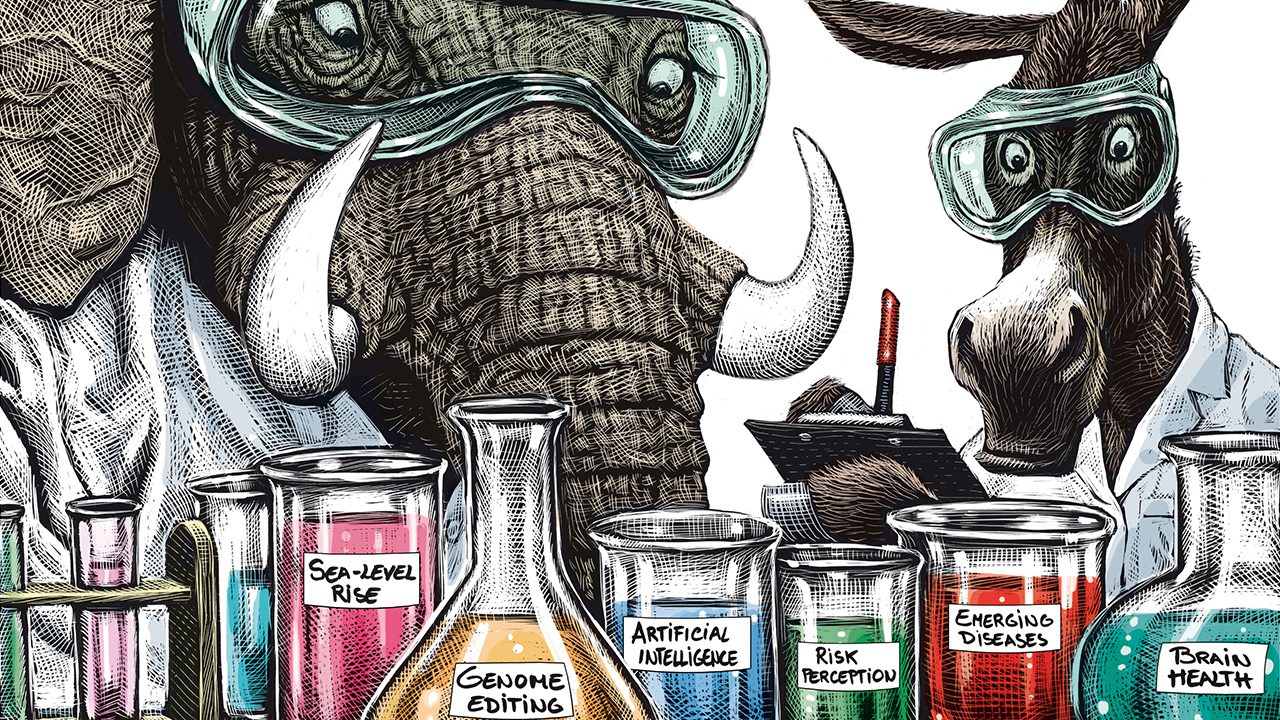


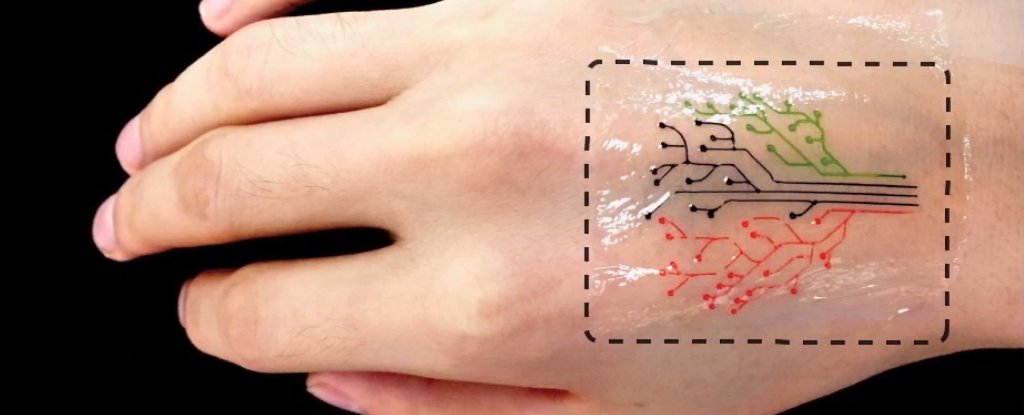

Comments (0)
This article has no comment, be the first!